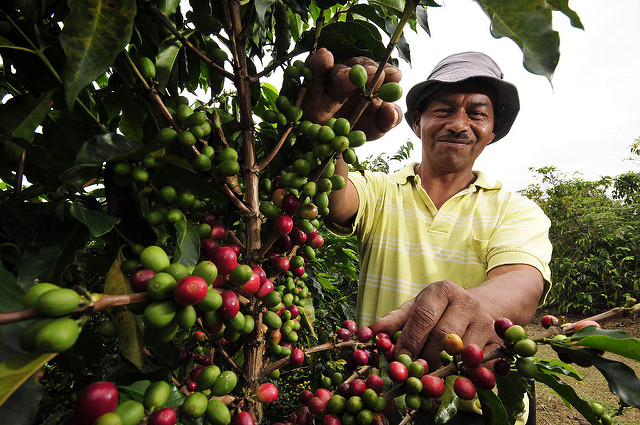For more than three decades, IFPRI’s research and collaborations in the Latin America and Caribbean (LAC) region have produced rigorous evidence leading to innovative market and trade policies and effective social protection and nutritional programs. In the 1980s and 1990s, IFPRI’s research in the region centered on global and regional issues, particularly on the role of market and trade policies in increasing agricultural productivity. By the mid-1990s, that work expanded to provide direct support to national and local governments and stakeholders to help them tackle the challenges affecting the well-being and livelihoods of the poor.
Notable work between the mid-1990s and 2010s include evaluations of social protection and nutrition programs. In Brazil, Mexico, and Nicaragua, IFPRI’s evidence-based results helped policymakers make program improvements that enhanced the welfare of millions of poor people.
The global strategy for addressing undernutrition was influenced by IFPRI’s trailblazing work in LAC. One of IFPRI’s earliest nutrition research projects, conducted in Haiti, produced robust evidence that a preventive approach (giving nutritional interventions to children under two years, before they become undernourished) was most successful at reducing stunting and wasting. A long-term study in Guatemala provided the first direct evidence that investments in child nutrition before the age of two yield high returns in adulthood—increasing men’s wages by 46 percent and raising women’s educational completion level by one to two grades. Both findings helped convince the global nutrition community, including the Scaling Up Nutrition Movement, to adopt a child’s first 1,000 days as the critical window of opportunity for improving nutrition. Further, IFPRI’s nutrition work helped significantly lower stunting and anemia in LAC. The Programa Comunitario Materno Infantil de Diversificación Alimentaria (PROCOMIDA) in Guatemala, which IFPRI co-designed, reduced child stunting by 10 percentage points, and IFPRI’s Happy Faces program in Peru decreased anemia in adolescents by 50 percent.
IFPRI’s longstanding collaborations in LAC enhanced policy makers’ access to rigorous evidence and credible information to develop strategic policies and investments. In partnership with the Peruvian Ministry of Economy and Finance, IFPRI created a groundbreaking typology that ranks development projects based on their risks, potential impact on poverty, and costs by region. The typology was integrated into the National System of Public Investment during the 2015-16 budget planning process and was used to target and prioritize about $1 billion in public spending on rural development projects.
IFPRI has contributed to positive changes in the region for more than 30 years, including partnering to enhance the culture of accountability and generating robust evidence that has strengthened resilience, improved nutrition, and prompted strategic policies and investments. Motivated to achieve the Sustainable Development Goals in the face of continued poverty, malnutrition, economic inequality, climate change, and inadequate public investments in agriculture, IFPRI will continue to build on its work to accelerate progress to sustainably reduce poverty and end hunger and malnutrition in LAC.
Highlights of IFPRI’s work in the LAC region are available in this brochure.
Janna de la Paz is a Program Analyst at IFPRI. To view/download/print a PDF of this post, click here. For more about how IFPRI research is influencing stakeholders and policy debates around the world, see the Outcome Stories blog.







